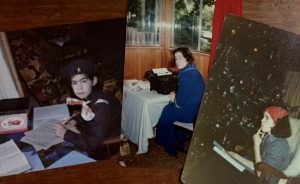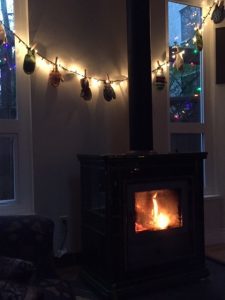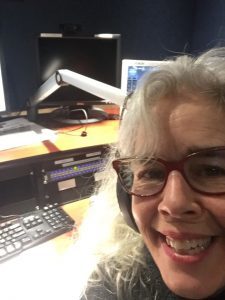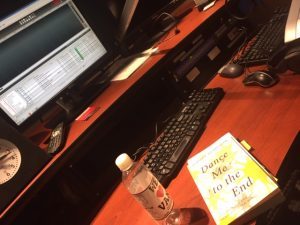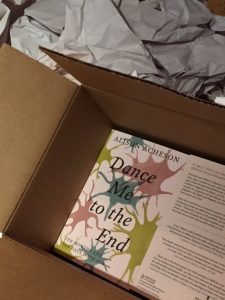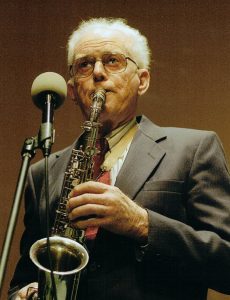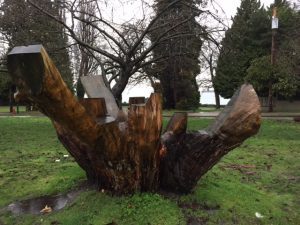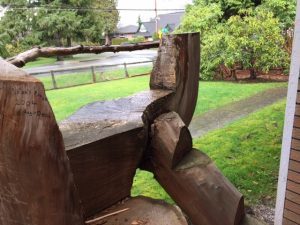Alison Acheson's Blog, page 2
February 8, 2022
How to Choose an Academic Essay Writing Service
When you first start outside as a school paper writing service supplier, the first thing which you want to do is completely investigate just what sort of school paper writing services you’re likely to be doing. There are many different kinds of papers that you can compose for, but that does not necessarily mean that all faculty paper writing services will be writing for the very same sorts of newspapers. Each paper has a different emphasis, different tastes, and different audience. For instance, many sports magazines will feature stories on sports-related topics, while other sorts of newspapers like entertainment magazines might want to talk about movie releases or gossip columns. And then of course there are company papers that are strictly business related and will feature articles on matters like mergers and acquisitions, as well as the stock exchange.
If you’re thinking of becoming a school paper writing service writer, or in the event that you already work as such a writer, then you should be aware of exactly which sort of work you are doing and whether it is of a design that’s appealing to other writers. As with anything else, there are those who just do not enjoy what you are doing and will tell you so. So ensure you are clear on your intentions from the very start.
After you have done your research into the kind of writers you are capable of working for, then you could be prepared to pick a particular sort of college paper writing services that you’d like to supply. This may be a good time to think about what you want your newspaper to look like. Most authors will choose to make a one-page synopsis and write the entire paper in this manner. If you are a more visual person and would like to add pictures in your papers or charts and graphs, then you will want to locate authors who are prepared to work with you on this kind of project.
Among the most popular sorts of school paper writing services entails having the writer write brief descriptive paragraphs about each one of the sections of the newspaper. You may also request the author to utilize their own words to describe specific things within the papers. You might also have the option of letting the author draw an image for you. Some authors will draw a figure, diagram, or chart, and write the main portion of the newspaper in accordance with the drawing. Others won’t draw at all and will just describe things in their own words.
Finally, another aspect of college paper writing service will use a live conversation system to be able to communicate with the writer over the telephone. Within this procedure, you will have the ability to ask any questions you affordablepapers may have about the articles, and the writer will be able to react to you. It’ll be quite easy to see how well the author communicates with you on the phone, and this might help you determine whether or not you wish to hire that writer for your papers.
It is essential for you to research the background of all the essay writers that you are thinking about hiring before making your final decision. You should read testimonials, speak to those who have used that school paper writing support, and talk to the administrators at the school. If there is anything you feel is not right about the person who will be working on your papers, then it will be most appropriate for you to keep him or her from continuing in that capacity. College students comprehend the significance of finishing an academic job in line with the criteria of the school, and you’ll discover they appreciate a fantastic grade very much. It is not necessarily possible to please everyone, but by employing the college paper writing service which you expect, you can give yourself the best chance at getting a quality academic document completed.
September 8, 2021
Announcing! The Unschool…
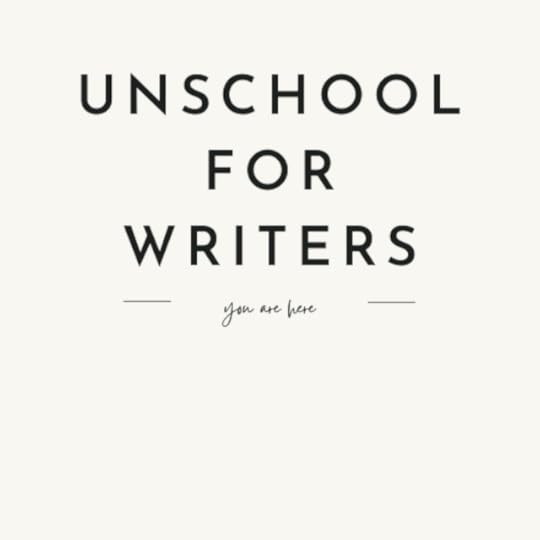
I am so pleased to share with you that I have put together a newsletter of writing, an eclectic mix, 8-10 pieces each month, including craft pieces, grammar/punctuation, reviews of time-tested and favourite books on writing, as well as encouraging, maybe even inspiring pieces– everything from mental/emotional health of writers to a look at connections between craft and the Tao Te Ching. Fiction, nonfiction, writing for young people, even really young ones, and more…
It’s on Substack, and you can explore at:
https://unschoolforwriters.substack.com/
Check it out, enjoy, let me know if you have any questions!
I am so excited about this! I’ve left teaching at the University of BC, after 14 years, and this is now my way to connect with writers of all ages and “levels” of experiences…
Wow! We so need a new word for that. I’ve left academia to lose the hierarchy. So let’s call it “spaces of experience.” Or… ?
See you there.
Peace–
Alison
May 15, 2020
Medium-rare or Medium well-done is Medium
I have made the decision to post work on Medium.
Just because, you know, I’ve always liked to write.
My contract position at UBC is now half-time as of this past year, and I write every day–or almost–working on a novel, at the moment, for adults. Yet another new area for me. The novel started as another short story for the collection I have been working on in the past six years..and grew and grew until it was long past short story length. It is now almost 250 pages, and growing. And in the last couple of weeks, I have a contract for another children’s book.
Slowly, my teaching is diminishing, and my writing is growing, and that is my goal. I have taught for many years, and actively worked with others on their careers. Now, as a working writer, I am looking to Medium to fill cracks and to keep me thinking on the page.
Medium is fun! It is ad-free which is huge to my mind, and it is a solid source of information and inspiration. (For the most part; you can “train” it to bring up pieces of interest to YOU.) It is only $5 per month to be able to read as much as you want, and the writers are paid from the subscription fees. (I believe you can read a couple pieces a month for no cost…but then the writers are not paid. And you know what that means.)
Here are some of the pieces I’ve posted:
Disenfranchised Grief: All grief is loss
Grieving and Mourning: What’s the difference?
Homeschooling: How many days of school can a child miss before they start to slip behind?
What the Homeschool Home Might Look Like
March 23, 2020
Putting COVID-19 into the Box(es)
It’s been a week since Mr. Trudeau gave that talk. (Yes, there have been others and will be more…. but I’m talking about the first one that really registered.) Last Monday night, I went to hear some live music, for what I knew would be the last in what will be way too long. There was a small number of people there, all keeping distance. And each thoroughly enjoying, because we all knew, This is It.
Tuesday, I began to teach the first of my two UBC classes online. And just as I thought: my quietest class EVER bloomed full-on with active participation! I have been so heartened by them.
Days tick by. Slowly. I am managing to write almost 1000 words a day. But there are–of course–other demands on my time. And as I was standing outside my corner grocery store, Union Market, in a lineup that did not look like a line, waiting for my turn to be one of two people inside, a thought occurred to me.
This time we are going through, while very different from my time of caregiving, also shares some commonalities. In that time of crisis, I found that I needed to create mental boxes to place pieces of the reailty, and to differentiate between what needs to be considered or responded to each day/week/month.
And now I am doing that again. I have had moments of thinking of “future.” The first few times that my mind went there, I began to feel some bit of panic at the edges of the thought. I had to pull myself back from it. ( I have learned how to do that.) The panic and the need to pull back made me realize that I am back in crisis-land, and I realized I was going to have to unpack and use those old boxes again.
The boxes: The today box is for what needs to be done Right Now. Today I will think about the meals I will be making. I will look to see what I have. If I can delay shopping, I will. I’ve always loathed shopping of all sorts, anyway. What do I need to do for my teaching? Can I get my daily word count written? Are there phone calls I need to make? My mother is very lonely, and a phone call can make a big difference. Are their emails I need to make for the same reason? Then, too, there are emails and things that must be written in lieu of the book promotion that I had planned. When my mind begins to slip into that other mode–the thinking ahead or panic mode–I pull back to Today mode, and the Today Box.
But then there does have to be a This Week box, too, and in that box I plan when do I really have to grocery shop (Forage For the Family), and what do I absolutely need. I keep a running list so I don’t have to go out again for something I’ve forgotten. I do not want to hoard. And my new home is not big enough to hoard. But I also don’t want to be in a store for a minute longer than need be. I’m finding being in a store to be overwhelming. When I leave I always feel I have a sore throat…psychosomatic or what? When I get home, I do the rinse-with-hot-water-and-too-much-salt thing…and it goes away.
For This Week, I look at the calendar and plan for the on-line meetings, and class lectures.
Then there is the This Month box. This month…well, you get the idea.
There IS a Future Box, too. One for the looming summer. What will that look like? And now we are hearing rumours that the fall will be about Wave Two of This Virus Thing. So, for five minutes a day, I need to think about that. And on Facebook, when a friend posted lovely pics of the pottery candles she is creating, I wrote about how they look like Christmas shopping to me…so that is in a Future Box, too. I hope.
Oops. Don’t go…
I have become too good at cutting off mid-thought. Getting back to what is at hand.
When my mother was dealing with my dad’s ALS, she said she worried constantly about the future. I reminded her she had a lot to do today and this week. But she said she still worried.
“Put on a timer,” I said, almost harshly, really. “Ten minutes. No more. Think about the future, with a pen and paper and jot down what you need to do for it. When the timer goes, you know you’re done. You’ve done as much planning as you need, and as you can. and then get back to today.”
What’s that quote about writing a novel…? “Writing a novel is like driving a car at night. You can see only as far as your headlights, but you can make the whole trip that way.” (E.L. Doctorow)
Same thing really. Thing is, you have to drive and you have to write (if you are a writer). You can make the trip. That will happen. But you are only ever exactly where you are on the road at any given moment. So be there. In your This Minute Box.
December 19, 2019
A Frosty Christmas Eve
I wish I had a photograph of this memory. But I don’t remember even owning a cell phone at the time or, if I did, I’d left it at home…where it belonged.
Once, years ago, I took my sons to Centennial Beach in Tsawwassen on Christmas Eve. It is a beautiful place, looking across the water to the town of White Rock. And to the south west is that bit of America, Point Roberts, rather wild looking.
It was a rare December day in its sunshine and clear cold; we do not have many of those days in the Lower Mainland of BC.
Rarer even, at the time, at that beach, one could build a fire, summer or winter. Though to that date, I’d never seen a winter fire going.
But that frosty Christmas Eve day, one fire pit was roaring, sparking into the crisp air, and there were two ageing women sharing the warmth. They’d brought fold-out chairs and afghans, and were bundled up with heavy bowls of soup in their hands. I remember the steam curling up from the bowls, and their hands holding those bowls and spoons, and their faces.
They were deeply in conversation, enjoying their meal, taking pleasure in the fire and the bright frost, and the togetherness.
Those were the years when I went to the beach at least once a week with my sons. And even as I did that, I was aware that that time in my life was passing, that one day I would not be here with them, that they would grow up and away, and that was natural and healthy. But that I would grow old and life would change, and change might be terrifying. I might be alone someday. Little did I know my spouse would be not with us anymore not many years after that, when my youngest was still in his mid teens.
I looked at those two friends–friends of many years, I would guess–and felt reassured that while life would move on in its way, there were good times to come. All one had to do for a memorable time was to pack a hot lunch on a cold day, and a blanket, and box of matches.
So now I spend a day writing by my Christmas tree, in my home in the city where I now live, and my woodstove crackles, and I remember that day, and those two friends. Little did they know how I needed to see that, and hear their laughter over the sand.
November 19, 2019
Back Home to CBC Radio
Yesterday I spent the better part of a day in a booth at 100 Hamilton Street in Vancouver–the CBC Radio building. The booth was carpeted and dark and filled with equipment. All I needed to do was put on headphones and speak into the big microphone. I’m such a tech-dummy that I forgot to put on the headphones and it wasn’t until I heard a voice–a small faraway voice–and looked for a volume button…though I could not recall being told anything about “volume”… at last it occurred to me to put on the headphones. Wow. I can only laugh at myself sometimes.
I grew up without television for the most part, and while my father listened to a bit of radio news, for the most part my home was silent in terms of media. Even music, records played on the stereo, was never background. No, if you put on a record, you were supposed to sit and listen to it. And true, music IS something to listen to, but it’s also good just to play it and enjoy.
It wasn’t until I met my husband Marty that I actually listened to our national radio. And because I was not aurally initiated, it took a number of months to begin to be able to absorb words in this way–yes, this was true for me. Marty on the other hand, grew up with the CBC. When we visited his father in his upholstery shop, CBC was on, and Don would work with the radio voices as his co-workers through the day. Then listen more at home at night.
The title of my memoir, Dance Me to the End, is from CBC radio. It is Leonard Cohen’s song title, and yes, I’d heard it before I heard it on the radio, but there was a morning when I was caregiving my husband, and I had to pause because the song had come on, and I was hearing the words as I hadn’t before. And yes, there is a poem in the book that opens with a line about CBC in the morning.
Marty passed away on a Sunday, and I remember my hand on the dial, turning off the radio that day. I remember other times, later, and trying to turn it back on. But in truth, I have not been able to listen to CBC as I used to; it is so connected in my mind with other times.
A couple months ago, I received an email from the publicist working to promote my book: she shared that she’d had a request for me to do a spot with CBC Syndication…meaning, short interviews with various show hosts from across the country, the ultimate in getting out the word about one’s work in this country. Exciting news indeed! The publicist and my publisher were thrilled, and I was too, along with a bit anxious to do this right, and also a sense of circling back to something…
A week ago, I found the right number on my car radio as I was on a lengthy drive, and listened again to the station that was, for decades, such a part of my life. I realized, as I listened, how this had been such a source of knowledge of my world. And how I have missed it. I wrestled with the sadness, too.
So yesterday, I showed up. I was led to the booth. I finally figured out the headphones before they tossed me out. And the first interview happened. After the second was over, and there were just some short seconds before signing off, the host wished me all the best “with the others,” as he knows the process, and nature of being asked similar questions repeatedly, and also with a thought to the subject matter of my memoir, the re-living of painful times. In fact, a small number of hosts did, in those post-interview seconds, share their own losses. At some point, I realized that as difficult as I might find talking, they too have jobs that demand speaking about the uncomfortable–probably often. And then continuing on to the next… That is not easy.
There was a knock on the door of my booth. I was so immersed in the process to that halfway point, that I had to think about where I was, bring myself back. A woman was looking in through the narrow glass panel in the door. Gloria Macarenko. A familiar voice. “Let’s do this one face to face,” she said and led me to her office. She mentioned the coldness in my booth, something about a flood in the building, and how the heat was working and not working.
We did the interview. She asked me how Marty would feel about what is happening now with the book. I started to answer, and then laughed and said how pleased he would be that I am here, at the CBC, doing this. How that would mean something to him.
She walked with me back to the booth and asked if I might need a shawl. I had a woolly sweater. But was warmed more by her offer.
Such professionalism in her work, and yet such human compassion, too. The two can co-habit. I could feel similar from the remote hosts, too. And as I went through the second half of interviews I was remembering what it was to feel connected with the CBC. I caught a bit of news from one station–weather and such–and felt the size of the country, and the tenuous threads that hold us together.
As I gathered my belongings to leave the booth, I knew I had another gift in my life: I was back home with the CBC. This process, the writing, the sharing the writing, has made it new. And that’s how we return after grieving.
November 13, 2019
Dance Me to the End
October 8, 2019 was the birthday of this 11th book.
This is a particularly special book. It is possibly the only memoir I will write; it is the second book I have written for adults (and the first was almost–gulp–twenty years ago).
It is also the book that I was looking for when I was housebound and caregiving.
Reviews have been posted, and I have given interviews and written blog posts and articles. I will post links to all here…
Most recently, a piece in Chatelaine:
https://www.chatelaine.com/living/boo...
A blog post for All Lit Up, a wonderful blog for readers.
https://alllitup.ca/Blog/2019/Under-t...
And a VERY lengthy URL for an article in The Delta Optimist, about the Ladner Black Bond books signing:
https://www.delta-optimist.com/entert...
Review in Library Journal:
09/01/2019
Inspired by the Leonard Cohen song Dance Me to the End of Love, this lyrical debut memoir from Acheson (creative writing, Univ. of British Columbia; Learning To Live Indoors) captures life as a series of snapshots, as a couple grows simultaneously closer together and further apart in the wake of a sudden life change. Acheson shares dreams and letters, notes and journal entries from the months after her husband, Marty, was diagnosed with amyotrophic lateral sclerosis (ALS). She relates how Marty, a guitarist and music teacher, distracted himself with golf while she found solace in writing and reading. Alternating between hope and acceptance, Acheson recalls her decision to enter the role of caregiver, longing to remember who Marty had been and who he still was. Her prose shines when asking questions with no easy answers, including how and when to disclose to their sons and extended family. As people volunteer information and ideas, and as the family turns to fundraising, she considers the meaning of words such as struggle in relation to illness. For Acheson, caregiving requires humor, flexibility, suspending judgment—and the willingness to accept her husband’s end-of-life wishes. VERDICT A mesmerizing memoir by a talented writer on coming to terms with the unexpected.—Stephanie Sendaula, Library Journal
Review by Sarah Murdoch, for the Toronto Star:
https://www.thestar.com/entertainment...
My second interview, for Mica Lemiski, of Fainting Couch Feminists:
The Storytelling Show, Vancouver Coop Radio, Sept 1 and Oct. 10:
February 9, 2019
Tithing
February 4th would have been my dad’s 88th birthday. It is almost two months since he left us…and has left me thinking about him. About his way of being in the world.
When Dad had his first bit of pay in hand, so many years ago, he took one-tenth of it and gave it to his church. And with every pay-cheque following, through his entire life. In the Bible, it’s called “tithing.”
He tended to have conflicts with churches, and he would go through times of keeping his study of the Bible and his worship personal, and retreat from the more public practice of attending a bricks-and-mortar. At such times, he would bank his tithe in a special account or donate it to missionaries. His grandparents had been missionaries, and the role of missions was critical to him. So over his years of earning, he supported missions, missionaries, their children, their schools. He supported an airplane pilot in Indonesia, and a Bible School in Brazil, and behind the iron curtain radio ministry, as well as broadcasting elsewhere with the message that meant so much to him.
In the 80s–so long ago now it seems–I was earning not much more than minimum wage, but I remember wanting to buy unbleached paper. It was significant to me; I used so much paper. I always needed hard copy for writing my stories. I couldn’t think and type. I wrote long hand for first drafts, and then typed and then used a computer for later drafts. I was constantly buying and using paper, and the process of making that clean white stuff disturbed me. But at that time, it was new technology to create a product that was a bit less harmful for the environment, and it cost so much more. Much like buying organic food does now, or clothing not created in places of workplace horror.
I remember paying the extra, for dingy clay-coloured paper. And I remember thinking this is what it is to believe this is just right. Money where mouth is and all. Supporting what matters to one.
I couldn’t help but notice this past month, accumulating numbers for my taxes, the amount I’ve spent on music in the past year. Not much, really. Depending on how you look at it. A month of Vancouver rent for one or two co-habiting musicians, is what it would amount to. Add with local bands, the funds going to the restaurants and bars that host the musicians… maybe another month of rent. Maybe a food bill.
How much to bookstores. Small independents… My rule for buying second-hand books has been this: the author must be rich or dead. Small number for the first group, bigger options for the second. But alive and broke? Buy new. Watch the books you buy: if there’s a black marker slash across the bottom, it’s not a book from which the author will see earnings. (Is that another post? Do you know how this works?)
What you want to eat, drink, read, see, hear–tithe and buy. On a mission.
The post Tithing appeared first on Alison Acheson.
Secular Tithing
February 4th would have been my dad’s 88th birthday. It is almost two months since he left us…and has left me thinking about him. About his way of being in the world.
When Dad had his first bit of pay in hand, so many years ago, he took one-tenth of it and gave it to his church. And with every paycheque following, through his entire life. In the Bible, it’s called “tithing.”
He tended to have conflicts with churches, and he would go through times of keeping his study of the Bible and his worship personal, and retreat from the more public practice of attending a bricks-and-mortar. At such times, he would bank his tithe in a special account or donate it to missionaries. His grandparents had been missionaries, and the role of missions was critical to him. So over his years of earning, he supported missions, missionaries, their children, their schools. He supported an airplane pilot in Indonesia, and a Bible School in Brazil, and behind the iron curtain radio ministry, as well as broadcasting elsewhere with the message that meant so much to him.
In the 80s–so long ago now it seems–I was earning not much more than minimum wage, but I remember wanting to buy unbleached paper. It was significant to me; I used so much paper. I always needed hard copy for writing my stories. I couldn’t think and type. I wrote long hand for first drafts, and then typed and then used a computer for later drafts. I was constantly buying and using paper, and the process of making that clean white stuff disturbed me. But at that time, it was new technology to create a product that was a bit less harmful for the environment, and it cost so much more. Much like buying organic food does now, or clothing not created in places of workplace horror.
I remember paying the extra, for dingy clay-coloured paper. And I remember thinking this is what it is to believe this is just right. Money where mouth is and all.
Secular tithe. Supporting what matters to one.
I couldn’t help but notice this past month, accumulating numbers for my taxes, the amount I’ve spent on music in the past year. Not much, really. Depending on how you look at it. A month of Vancouver rent for one or two co-habiting musicians, is what it would amount to. Add with local bands, the funds going to the restaurants and bars that host the musicians… maybe another month of rent. Maybe a food bill.
How much to bookstores. Small independents… My rule for buying second-hand books has been this: the author must be rich or dead. Small number for the first group, bigger options for the second. But alive and broke? Buy new. Watch the books you buy: if there’s a black marker slash across the bottom, it’s not a book from which the author will see earnings. (Is that another post? Do you know how this works?)
What you want to eat, drink, read, see, hear–tithe and buy. On a mission.
January 14, 2019
Tree cut
On my way to teach I drive through Kitsilano, along Beach Avenue, and then 4th. Second day of teaching in the new year, less than a month since Dad passed away.
And I see this:
Look closely and you’ll see at least four seats with reclining backs cut into these tree trunks. When it’s not grey and pouring rain–as it was in early January–you can sit back and look up at the stars…I’m guessing. I’ll have to return on a clear night. With a friend or two or three.
My first thought, when I saw this, was that I’d have to share it with Dad. He has a thing about big trees, and enjoying them for years, and then taking them down once they get too old. But not like most would. No. He creates picnic places and magic when he does this. Here are Dad’s trees:
When I passed the tree by the beach, I didn’t stop. I continued, took the corner onto 4th Avenue, found myself looking at the clock; I’d been hoping to get to work early to allow my brain time to pull together the last threads before a lecture, and the energy I need for that.
If I were to stop, I’d have less time. Yet even as I drove on, my thoughts were stopped at that tree, and words were coming in to my head about it. These words. I realized that if I took the next right, and the one after that, I’d end up back at the tree. How long could it take, I thought, to get out of my car, walk through the rain, take the pic, and get back in? Would it really make me late?
So I turned and did just that. Took a half dozen photos from various angles, and was a bit wet when I climbed back into the warm car.
The clock said I’d spent a mere seven minutes. And I arrived in my office no later than I’d planned anyway.
I wrestle with teaching. I teach what I love to do; I teach writing. But teaching writing, and writing, are not the same things. They both bring different types of energy to me. And the energy that sustains me, and has through the past few years–in particular, beginning with the journal I kept while my spouse was ill–is the energy that comes from writing. That is the energy I need to feed myself before anything else can happen.
It’s like the yellow oxygen mask that is supposed to fall out of the compartment overhead if an airplane is going down; you’re supposed to do it for yourself first, before others.
So I took the right turn, got the pictures, and am now writing the words that began to churn through my mind. And I notice that the above words about my dad and his love of whimsical tree cuts are in present tense. So maybe there is another reason to have done this, and even to write.

